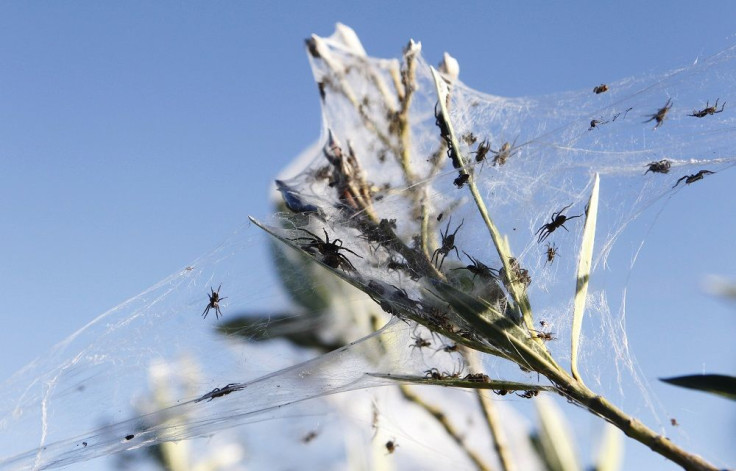Downpour Of Baby Spiders In Australia Is Result Of Mass Migration

Spiderman probably must have swung over the Land Down Under. Reports said that millions of baby spiders fell on Australia’s Southern Tablelands region.
As a result, the area was covered by silky webs, reports the Sydney Morning Herald. The unusual insect downpour is the result of a mass migration by baby spiders which usually release a stream of silk when they jump. Experts assuage Aussies that the creepy insects would probably disperse once the weather becomes warm. It is moving towards winter in Australia, which officially begins in June and lasts through August.
However, IFLScience notes that the unexpected downpour of spider is “the stuff of nightmares for those with arachnophobia,” or the fear of spiders. Explaining the downpour, the Web site said that the spiders release silk threads, or gossamer, and use it as parachutes which are picked up by the winds.
The result is the eight-legged insects travel across large distances as part of their natural periodic migration patterns. Because of the spider glue of the gossamer, the parachutes knit together en masse, which form thick layers while moving and when it settle. These spider parachutes could be seen as far as 1,600 kilometres from land.
According to Martyn Robinson, naturalist of the Australian Museum, the baby spiders could travel for kilometres, which explains why all continents have spiders, even in Antarctica, though it eventually die. The spiders are also usually the first land animals to arrive on new islands that are formed by volcanic activities, resulting in whole fields, paddocks and trees covered with gossamer, which is also called Angel Hair.
The Mayo Clinic says that most spider bites cause only minor injury, except for the bite of some spiders such as the black widow spider and the brown recluse spider. If bitten by a spider, the clinic suggests cleaning the wound with mild soap and water and apply an antibiotic ointment on the bite.
Then apply a cold compress by using a cloth dampened with cold water or filled with ice to reduce pain and swelling. Elevate limb if the bite is on the arm or leg. Mayo also recommends taking over-the-counter medication such as acetaminophen, ibuprofen or antihistamine.
To contact the writer, email: vittoriohernandez@yahoo.com




















